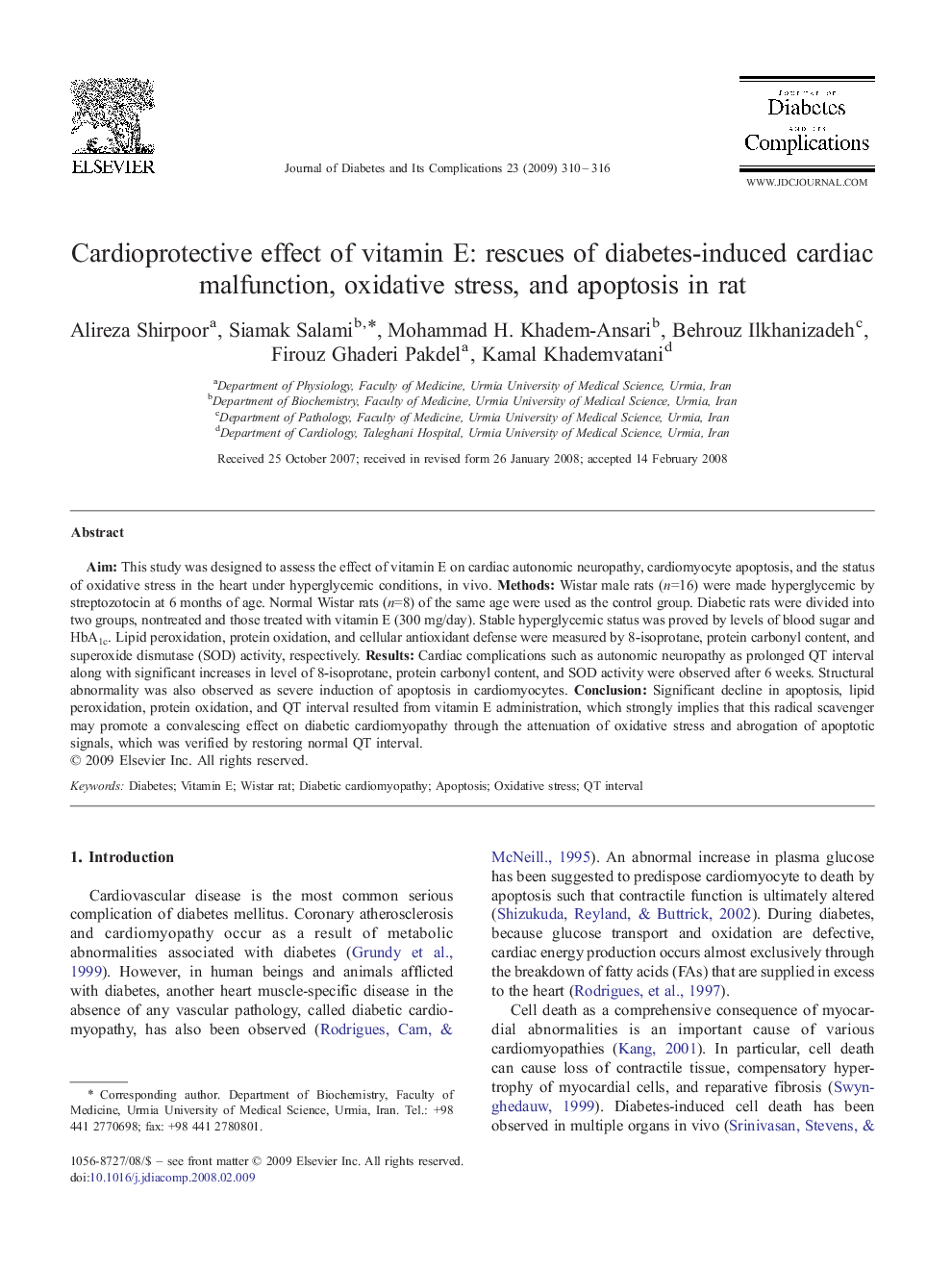| Article ID | Journal | Published Year | Pages | File Type |
|---|---|---|---|---|
| 2804557 | Journal of Diabetes and its Complications | 2009 | 7 Pages |
AimThis study was designed to assess the effect of vitamin E on cardiac autonomic neuropathy, cardiomyocyte apoptosis, and the status of oxidative stress in the heart under hyperglycemic conditions, in vivo.MethodsWistar male rats (n=16) were made hyperglycemic by streptozotocin at 6 months of age. Normal Wistar rats (n=8) of the same age were used as the control group. Diabetic rats were divided into two groups, nontreated and those treated with vitamin E (300 mg/day). Stable hyperglycemic status was proved by levels of blood sugar and HbA1c. Lipid peroxidation, protein oxidation, and cellular antioxidant defense were measured by 8-isoprotane, protein carbonyl content, and superoxide dismutase (SOD) activity, respectively.ResultsCardiac complications such as autonomic neuropathy as prolonged QT interval along with significant increases in level of 8-isoprotane, protein carbonyl content, and SOD activity were observed after 6 weeks. Structural abnormality was also observed as severe induction of apoptosis in cardiomyocytes.ConclusionSignificant decline in apoptosis, lipid peroxidation, protein oxidation, and QT interval resulted from vitamin E administration, which strongly implies that this radical scavenger may promote a convalescing effect on diabetic cardiomyopathy through the attenuation of oxidative stress and abrogation of apoptotic signals, which was verified by restoring normal QT interval.
